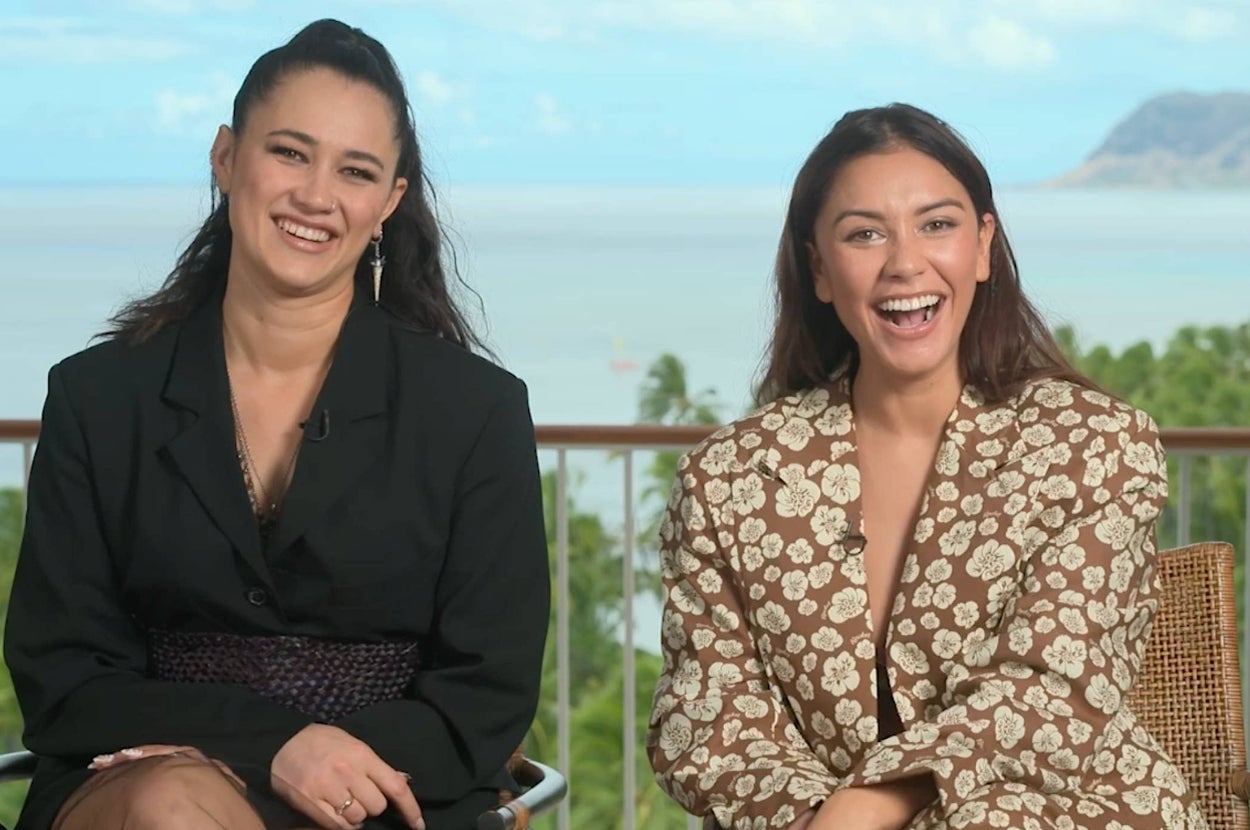With period pieces like this, we’re in the 19th century, and people assume that the men are the dominant force, the men rule everything, but in this series, to me, it’s the women who are holding it down. Can you speak to the strength that you put into these characters to build such strong women?
Luciane: Well, I think what was really cool is that Te Ao and I lived with each other twice because we were in different locations, and we were like, “We don’t like the hotels” because every time we go down to the lobby it’s like our entire crew and they’re like “come have a drink” and we’re like hmm.
Te Ao: We were trying to be really well behaved, but honestly, twist my rubber arm when it comes to hanging out with the crew – they’re just the coolest people!
Luciane: And we had so much work to do. But we had a long conversation at night about how there are only a few female characters in the show, when you see everyone’s headshots on the wall, you’re like, “Okay, 1,2,3,4”, that’s it. Even Mainei (Kinimaka), who plays Heke, we wanted to make these women feel like individuals. We’re not playing the same women, because we all have such different circumstances and different journeys. For Mainei, it’s her becoming a warrior, for you [gestures to Te Ao] haha so much actually.
Te Ao: It’s hard to pin that girl down; she’s going through a lot. With Ka’ahumanu [gestures to Luciane] to go from this freedom of curiosity and freedom of potential to being in such a position of strength and responsibility, but also being given a king who wanted to feed that and foster that.
Luciane: It was always kind of like this push-pull of being dutiful and following what my dad wants me to be, but also like what she wants in life. What is actually out there, and what’s that curiosity of the outside world? We worked so hard together, even though our storylines didn’t cross over.
Te Ao: We literally did two scenes together in the entire show, and only one of them made the show. I remember reading the script and then thinking, have they just refused to put us in a scene together because they’ve seen what we’re like off screen, and they’re like, “Absolutely, nothing will get done.”
I will say that my favourite thing it is amazing to be able to represent what it is to be a Polynesian woman because yes, it is – like you said – male-dominated and patriarchal, but as Polynesians, we are very matriarchal. And it depends on what island you go to; you get different varying degrees of what a matriarchal society can look like. It’s really exciting to show the world what that is because I know it’s prevalent in so many different countries and cultures, and it’s just not something we get to see very often. Wahine for the win!
